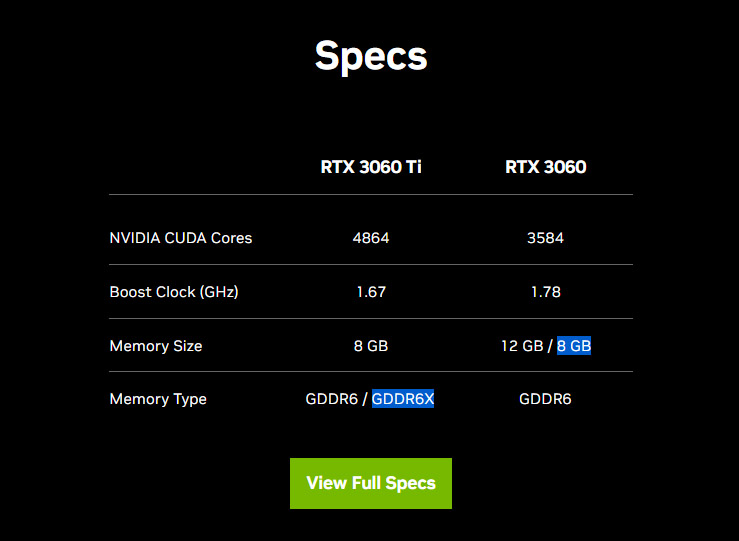When PCWorld executive editor Brad Chacos reviewed the GeForce RTX 3060 early last year, he said it was “fine.” Not exactly a ringing endorsement — he felt that using 12GB of GDDR6 memory on a GPU obviously targeting 1080p gaming was overkill, and a detrimental expense at a time when graphics cards were impossible to find for a reasonable price. Today Nvidia has revealed a more economical 8GB variant of the RTX 3060, which is probably the card it should have released over a year and a half ago.
The 8GB variant of the card gets an unceremonious introduction: just a new line on the RTX 3060 Family page on Nvidia’s website, with no press release or blog post to go with it. You can expect manufacturer variants of the cheaper card to start showing up at retailers starting in November, though given the hard-to-predict pricing of GPUs lately, it’s anybody’s guess what they’ll cost. The retail price of the original 12GB version of the RTX 3060 was set at $329, at a time when actually finding it at that price would have been a miracle. Today the street price of the 12GB card is in the $370 to $410 range.

Nvidia
Nvidia announced another variant of the RTX 3060 Ti in the same way. It uses the same 8GB of memory it had at launch, but it’s been upgraded from GDDR6 to GDDR6X modules. That slight bump in memory speed will boost game performance, though it’ll probably be a negligible increase unless you’re running with ray tracing or other high-end visual effects at high resolutions.
Refreshing the RTX 3060 series, especially with an ostensibly cheaper option, makes sense for Nvidia. For the first time it’s positioning its new generation, the RTX 40-series, as cards that will be sold and marketed concurrently with the older 30-series designs. Of course it was always going to be a wait of several months at least for cheaper xx60 variants, but this gives Nvidia a “new” card to put on the shelves in the meantime. And possibly even a little breathing room to release those newer, cheaper cards, while shoppers cast weary glances across the aisle at less expensive options from AMD and Intel.




